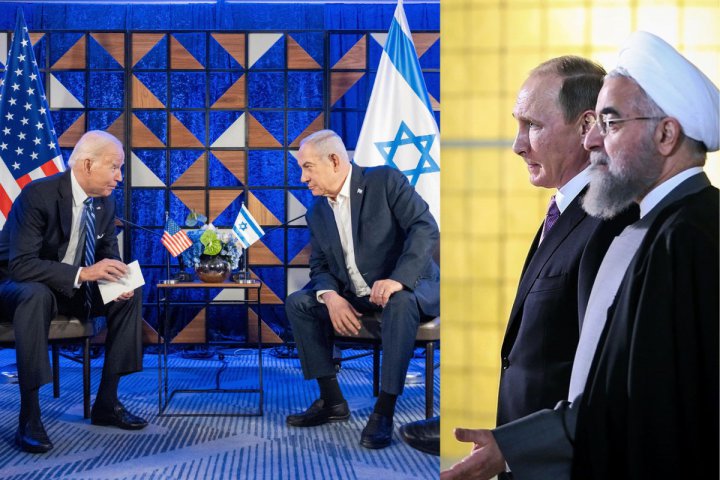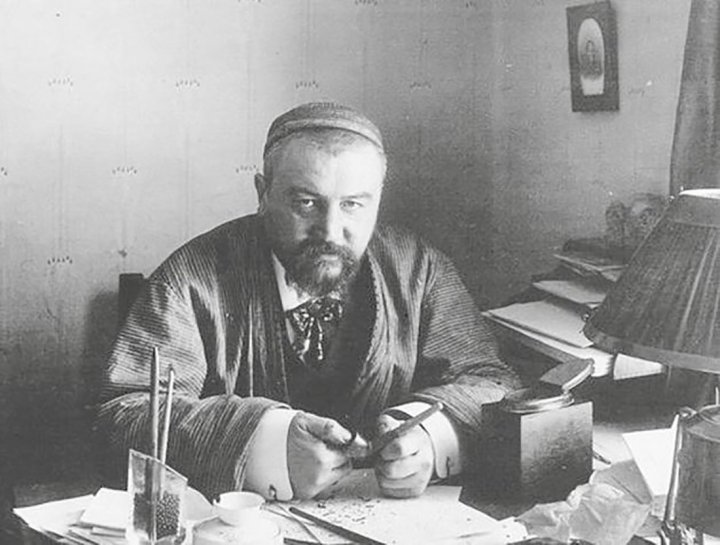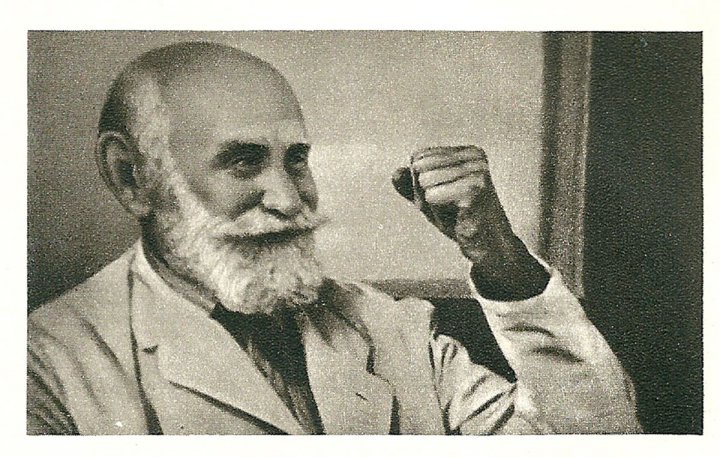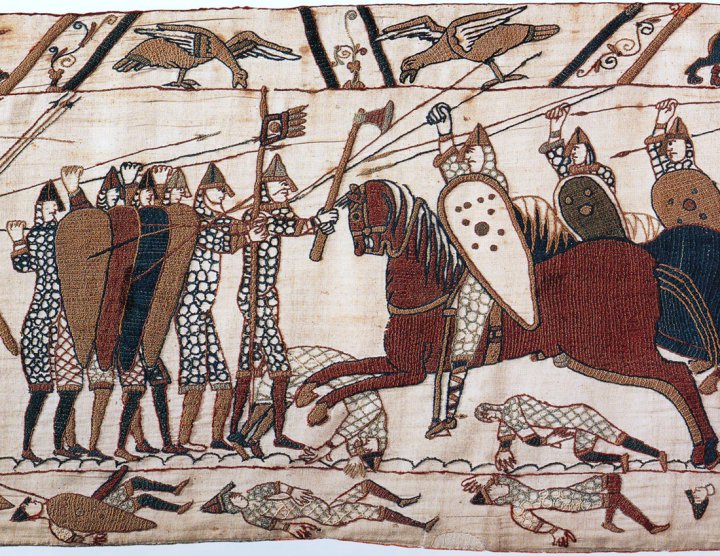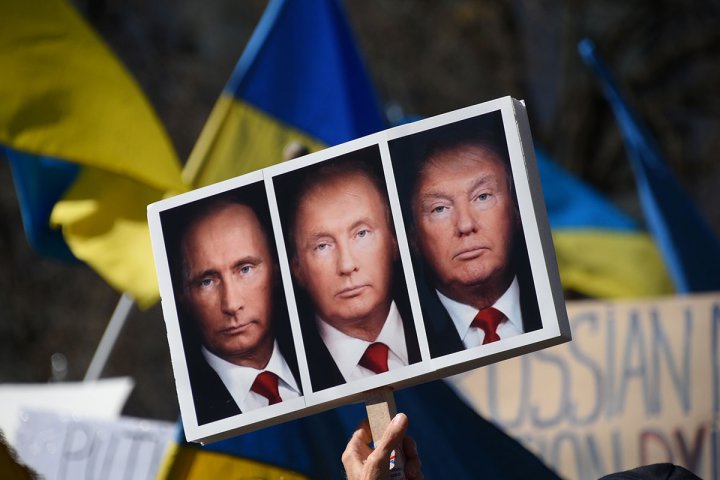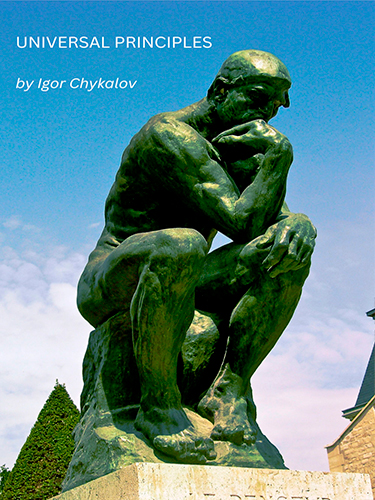International Criminal Court vs. Selective Justice
Laws should work with no regard to the identity of the accused,
so Themis is always portrayed with a blindfold over her eyes.
In real life she always peeps, but if she doesn't, she gets criticized.
so Themis is always portrayed with a blindfold over her eyes.
In real life she always peeps, but if she doesn't, she gets criticized.
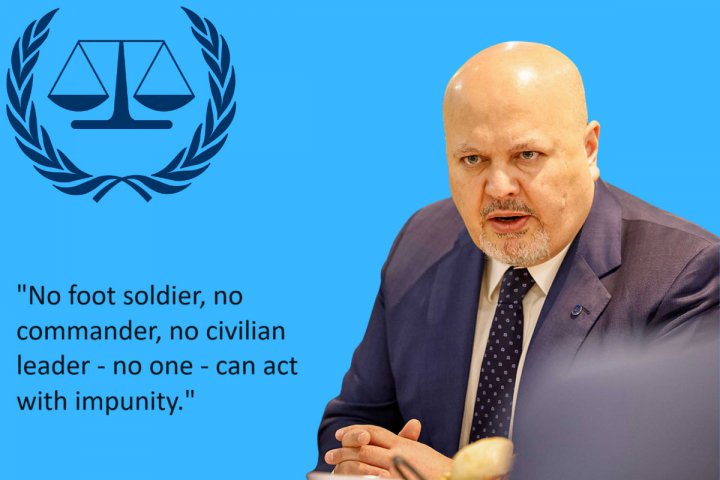
ICC Chief prosecutor Karim Khan. Collage from works of Ministerie van Buitenlandse Zaken, CC BY-SA 2.0 and Afrank99, Public domain, via Wikimedia Commons
Israel's current military conflict with Hamas has taken an interesting and rather unexpected turn: on May 2024, the International Criminal Court (ICC) chief prosecutor Karim Khan sent a request to the Court for an arrest warrant for Prime Minister of Israel Benjamin Netanyahu, Israeli Defence Minister Yoav Gallant as well as for three leaders of the Palestinian group Hamas - Yahya Sinwar, Mohammed Deif, and Ismail Haniyeh.
Karim Khan believes that they all are guilty of war crimes and crimes against humanity in the Gaza Strip and Israel.
It's about the escalation of the Arab-Israeli conflict on October 7, 2023: the Palestinian militant group Hamas launched an unprecedented assault on Israel, with hundreds of gunmen infiltrating communities near the Gaza Strip. About 1,200 people were killed, and more than 250 were taken to Gaza as hostages, according to Israeli tallies.
More than 33,000 Palestinians in Gaza have been killed in air and artillery strikes carried out by the Israeli military in response, as Gaza's Hamas-run health ministry says.
The Arab-Israeli conflict lasts for many years and the parties have accumulated so many grudges against each other that it is almost impossible to reconcile the opponents. It is impossible even to determine for oneself who is right in the next escalation; one has to look at the real facts from the entire previous history of relations to form a more or less unbiased opinion.
It is believed that this should be dealt with by the court and ICC Chief Prosecutor Karim Khan took up the case. He saw war crimes and crimes against humanity in the actions of both sides of the conflict and asked the ICC to issue an arrest warrant for the leaders of both sides. From this point of view, Themis, represented by the chief prosecutor of the ICC, acted in a completely impartial manner, i.e. exactly as justice should do. Prosecutor Khan does not care who commits the crimes - the terrorist group Hamas or the democratic state of Israel.
Themis is obliged to be unbiased and in this case she was really “blindfolded.”
However, this is strange. Hamas struck first on October 7, Israel is defending itself and therefore prosecutor Karim Khan and the ICC in general were sharply criticized for doing their job.
……….
Complete pluralism of opinions.
Karim Khan's appeal immediately caused a lot of noise in the world. It's very interesting to compare the reactions to the event of different countries and organizations. Whose position do you personally support? I added my opinion to each point below.
1. Israel immediately stood up to protect the sacred right of any democratic state to defend itself by any means, including the murder of at least 25 thousand Palestinians (most of whom are civilians) and even the Israeli opposition rallied around Prime Minister Netanyahu.
I do not share this one-sided position, although the Israelis can be understood - after all, Hamas attacked Israel on October 7. But it cannot be said unequivocally that the Israelis are “unfortunate victims” and the Palestinians are “aggressors and invaders.” It's all together here. Therefore, the point of view of Turkey and Saudi Arabia “the one who controls the territory is to blame for any conflict” should be taken into consideration. The territory of Gaza Strip and the West Bank is controlled just by Israel.
2. Hamas denounced the ICC prosecutor’s decision to seek arrest warrants against its leaders, accusing Karim Khan of trying to “equate the victim with the executioner”.
I also do not approve the Hamas's position. Firstly, Hamas presents itself as a victim of its own attack on Israel on October 7, 2024, which is silly, or it mixes in here all its previous grievances.
Secondly, Hamas probably assumed that the Israelis would definitely strike back. That means the Hamas fighters initially planned to hide behind the backs of their civilians and that there would definitely be casualties among the civilian population. In this case, Hamas is the enemy of the Palestinians, cynically using its fellow citizens as human shields. Perhaps this is why some Arabs condemn Hamas' actions.
3. The Government Media Office in Gaza has welcomed the ICC’s decision to seek arrest warrants for Israeli leaders, and also denounced the decision to apply for warrants for Hamas leaders.
Everything is clear here, «charity begins at home».
4. President Biden called the application for an arrest warrant for Mr. Netanyahu and Mr. Gallant “outrageous”.
“Let me be clear: Whatever this prosecutor might imply, there is no equivalence – none – between Israel and Hamas,” he said.
Mr. Biden appears to support Israel whether it is right or wrong. BBC writes that «… Human rights campaigners have complained for many years that powerful Western countries, led by the US, turn a blind eye to Israeli violations of international law, even as they condemn and sanction other states who are not in their camp.»
5. The Ministry of Foreign Affairs of France said it supported the ICC, “its independence, and the fight against impunity in all situations,” but the statement fell short of explicitly saying that France supported Mr. Khan for seeking arrest warrants for both Israeli and Hamas leaders.
France seems gently refrained from assessing the event.
6. The United Kingdom prime minister’s spokesperson said the ICC’s decision “is not helpful in relation to reaching a pause in the fighting, getting hostages out or getting humanitarian aid in”.
Great Britain declined to assess the event.
7. UN special rapporteur on human rights in the occupied Palestinian territory Francesca Albanese said she understands that for the people of war-torn Gaza, the ICC prosecutor’s move may appear too little, too late. «Without condoning or justifying the crimes that have been committed by Hamas, these crimes should have been investigated, and prosecuted. It shouldn’t have given leeway to Israel to start a war which has turned into a genocidal war against the entire Palestinian population,» she also said.
I support this point of view.
8. Belgian Foreign Minister Hadja Lahbib said that any crimes committed in Gaza must be prosecuted at the highest level. “The request submitted by the Court’s prosecutor, Karim Khan, for arrest warrants against both Hamas and Israeli officials is an important step in the investigation of the situation in Palestine… Belgium will continue to support the essential work of international justice to ensure that those responsible for all crimes are held accountable.”
Belgium seems to see the situation correctly and is not afraid to express it directly.
9. Austrian Chancellor Nehammer said that Austria fully respects the independence of the ICC but said the move to seek arrest warrants for Israeli and Hamas officials at the same time was “non-comprehensible”.
Austria honestly stated that it did not understand what happened and thus could not determine its attitude towards the event.
10. Czech Republic Prime Minister Petr Fiala declared: “The ICC Chief Prosecutor’s proposal to issue an arrest warrant for the representatives of a democratically elected government together with the leaders of an Islamist terrorist organization is appalling and completely unacceptable… We must not forget that it was Hamas that attacked Israel in October and killed, injured and kidnapped thousands of innocent people. It was this completely unprovoked terrorist attack that led to the current war in Gaza and the suffering of civilians in Gaza, Israel and Lebanon.”
Mr. Fiala also must not forget that Israeli settlers are constantly moving the Palestinians off their land in the West Bank, so it's not that simple.
11. Palestinian rights groups Al-Haq, Al Mezan, and the Palestinian Centre for Human Rights said Khan’s decision was “a crucial step” towards ending impunity in Israel’s war on Gaza. In a statement, the three groups said the ICC announcement follows “tireless efforts by Palestinian and international civil society organizations demanding the issuance of arrest warrants for members of Israel’s war cabinet.”
These organizations, too, apparently place all responsibility on Israel and do not see Hamas’s guilt at all.
12. Israeli rights group B’Tselem, a leading Israeli human rights group, said in a statement: “The era of impunity for Israeli decision-makers is over… The international community is signalling to Israel that it can no longer maintain its policy of violence, killing and destruction without accountability. Likewise, the request for arrest warrants against Hamas leaders for the crimes of October 7 is important and draws a red line where harm to civilians is concerned.”
I support this point of view.
13. UN special rapporteur on the right to housing Balakrishnan Rajagopal welcomed Khan’s arrest warrant requests: “... against Hamas, the charges of hostage taking and killing likely to stand but not others … Against Israeli leaders, all charges likely to stick. And missing charges include attacks against various civilian objects including homes!”
I agree.
……….
What is Rome Statute, ICC and what are their functions.
The Rome Statute is the treaty that established the International Criminal Court (ICC). It was adopted at a diplomatic conference in Rome, Italy on 17 July 1998 and it entered into force on 1 July 2002. As of February 2024, 124 states are parties to the Statute.
The Rome Statute established four core international crimes: genocide, crimes against humanity, war crimes, and the crime of aggression. Those crimes "shall not be subject to any statute of limitations." Under the Rome Statute, the ICC can only investigate and prosecute the four core international crimes in situations where states are "unable" or "unwilling" to do so themselves. The jurisdiction of the court is complementary to jurisdictions of domestic courts. The court has jurisdiction over crimes only if they are committed in the territory of a state party or if they are committed by a national of a state party. An exception to this rule is that the ICC may also have jurisdiction over crimes if its jurisdiction is authorized by the United Nations Security Council.
- 124 states have signed and/or ratified the Rome Statute as of now and became the states parties. States parties are legally obligated to co-operate with the Court when it requires, such as in arresting and transferring indicted persons or providing access to evidence and witnesses.
- 2 states (Burundi and Philippines) have withdrawn from the treaty in 2017 and 2019 accordingly.
- 4 signatory states (Israel in 2002, the US in 2002, Sudan in 2008 and Russia in 2016) have informed the UN Secretary General that they no longer intended to become parties to the Rome Statute, and as such had no legal obligations arising from their signature.
- 41 states have neither signed nor acceded to the Rome Statute: China, Turkey, Azerbaijan, India, Pakistan, Saudi Arabia, Kazakhstan, Malaysia, etc.
……….
Why did some countries not sign the Rome Statute, not ratify it, or later withdraw their signatures?
War is a dirty business.
Those countries that are constantly at war (Israel), are constantly going to wage war (Russia), can very likely participate in war (China, India, Pakistan) or maintain military bases around the world (USA) do not need an independent court that can convict their leaders for participation in a very possible military conflict. After all, “genocide, crimes against humanity, war crimes, and the crime of aggression” are sanctioned by the state leaders. Now the “good” Prime Minister and Minister of Defense of democratic Israel, and the “bad” leaders of Hamas are under attack... The “bad” dictator Mr. Putin was recognized as a criminal in March 2023 ...
Leaders of different countries quickly realized that they personally did not need an additional independent, democratic, international controlling organization, and suspended or revoked their signatures/ratifications or prudently did not sign the Rome Statute at all, like China.
Andriy Smyrnov, a deputy head of the Ukrainian President's Office, explained very well the similar approach of Ukraine in May 2022. He said that Ukraine would postpone the ratification of the Rome Statute until after the war was over as the ICC would receive a bunch of statements from Russia about alleged crimes committed by Ukrainian military and the court, naturally, will be obliged to assess these events.
……….
What will happen next?
Nothing special.
The ICC will now review the case and may issue arrest warrants for the leaders of Israel and Hamas, as it did in March 2023 for Mr. Putin for the transportation of the Ukrainian children to Russia.
How does issuing a warrant threaten the leaders of Israel and Hamas?
In different ways.
The main thing is all they are deprived of access to the 124 countries that ratified or are the parties of the Rome Statute, since any country on the list is obliged to arrest them. Obliged, yes, but there is no punishment for the failure to comply with this point which means there is some room for maneuver. Well, the Hamas leaders may pay no attention to the ICC decision since they are basically in hiding mode anyway, but this will greatly hinder Mr. Netanyahu and Mr. Gallant in their diplomatic voyages around the world.
……….
Selective justice is the ideal that many elites have come to in their countries. The same selective justice exists at international level.
Politics is also a dirty business. It is the politics (politicians) who start wars.
All governments of all countries (democratic and authoritarian, capitalist and socialist) and their leaders are more or less hypocritical. And untouchable. They tell their citizens fairy tales about the equality of all before the law, but in reality it turns out that a caste of untouchables exists in every country. They do not live by the laws they write for their fellow citizens. They are in favor of justice and equality only as long as the laws do not affect them personally. They do not want to be personally responsible for what they have done, but they want everyone else to be responsible for what they are doing, so they constantly point out at the problems to everyone, not noticing their own ones.
If there is a caste of “untouchables” in a country, then justice is applied selectively which means there is no justice and fairness in this country. The Ukrainians, in my opinion, formulated the essence of selective justice best of all: “Everything for cronies and the law for the rest.” I don't know who is the author of this brilliant formula. It arose and spread throughout Ukraine during the presidency of P. Poroshenko around 2015-2016.
Similarly, there is a caste of untouchable states in the world - the US, UK, EU countries, Japan, Australia, South Korea, Canada... Israel also thought that it was untouchable. These countries are “good” by definition because they are “democratic”. They are supposed to do everything right and, therefore, there is no reason to bring them to justice. Does that mean they are always right?
It is very good that the ICC is now setting an example of correct, non-selective justice at the highest level. Themis must be blindfolded. It is a pity that the ICC (like the UN) does not have its own “police” to implement its decisions. Many leaders of many countries would make far fewer criminal mistakes if they were held accountable for their misdeeds by an international independent authority such as the ICC.
"No foot soldier, no commander, no civilian leader - no one - can act with impunity" said Mr. Khan in his statement. The law, he says, cannot be applied selectively. If that happens, "we will be creating conditions for its collapse."
……….
P.S. How the Arab-Israeli conflict can be resolved?
In no way, unfortunately. It's not possible yet. It has been going on for over 100 years. Right now both sides, in my opinion, are equally right/wrong in their actions and nobody has to support one of them. We can only look at the whole picture and propose options to break the stalemate, the best of which is probably the creation of two separate states. This is what many countries and international organizations are doing now. However, even if the parties agree to this, the two states will be neighbors and how they will get along in the future is unknown. It may take at least a couple of decades to smooth out the consequences of such a long enmity, even if there is a good will of both sides which now is not there.
Comment
✚ Add comment
